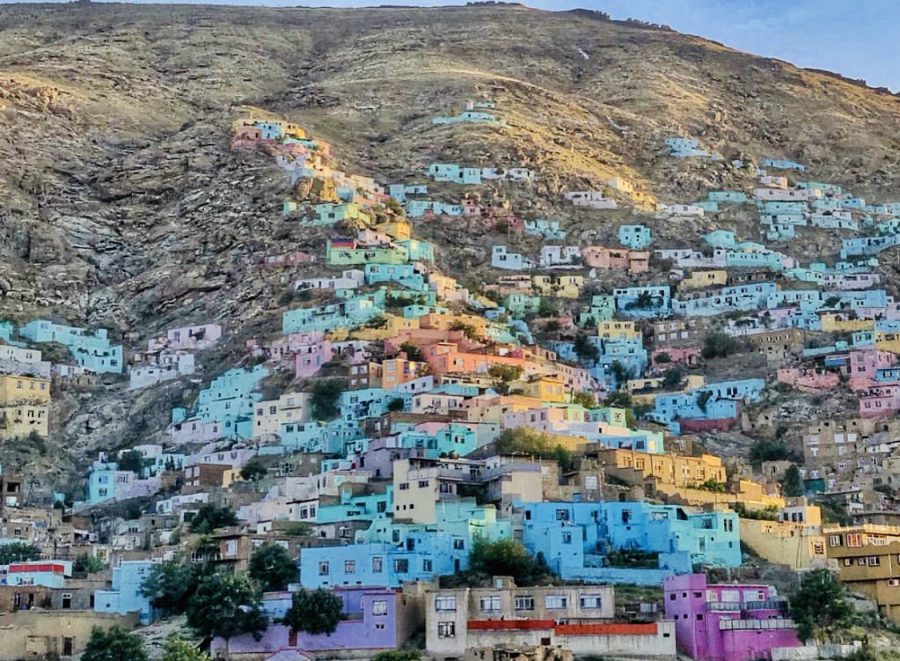What’s going on in Afghanistan, and why you should care
In February of 2020, the Trump administration struck a deal with the Taliban, agreeing to release 5,000 prisoners belonging to the terrorist group, as well as agreeing to slowly withdraw the entirety of American troops from Afghanistan by May 1st, 2021. The Biden administration delayed said withdrawal, but eventually announced a new withdrawal date by August 31st, which would mark the end of a twenty year US presence in Afghanistan. On August 15th, Afghani president Ashraf Ghani fled the country with four vehicles and a helicopter full of cash, seeking refuge in the United Arab Emirates. That same day, the Taliban peacefully walked into the capital city of Kabul and overtook the country. The Afghan army, lacking nine months of pay along with the US aircraft they were trained to use, gave up their arms without hesitation to Afghanistan’s new rule, as millions of men, women, and children were suddenly presented with a grim reality, and an even bleaker future.
Since then, chaos has ensued, and panic has spread. Tens of thousands of Afghani citizens stormed the airports, trying to escape their now fallen homeland, with some being so desperate to leave that videos have been taken of men clinging on to the side of planes as they take off from the ground, later falling to their predictable death.
The whole point of the US government spending twenty years in the country was to help fight against the Taliban, which would ideally raise the country to a level of economic and social stability. So how come the result of those twenty years of American and Afghani soldier sacrifice and time was simply the replacement of the Taliban with more Taliban?
The answer lies within the infrastructure of a nation. Something we often take for granted here in the west are the numerous underlying institutions that all work together to ensure we are able to live happy, sustainable lives.
The US’s interference in Afghanistan did not bring about any new infrastructure. If anything, they destroyed previously existing institutions that were put into place. Hundreds of billions of dollars were poured into these past twenty years and yet nothing of any substance or progress came into fruition. The US was good at bombing, but not rebuilding.
When a country lacks said infrastructure, the citizens of that country are then living in an area of instability and conflict. The Afghani people have been enduring this poor quality of life for a long time now, due to war and destruction by the US and previous invaders, and they do not have the resources to develop such institutions that can support human endeavour and human growth. Forty years of unending war and invasion make it hard to develop human capital. It becomes difficult to see five, ten years down when you’re not even sure there will be a tomorrow.
We have good schools to ensure children have access to worthwhile education. We have healthcare (admittedly flawed and expensive) to ensure people have access to hospitals and doctors should they encounter any physical or mental issues. We have stable financial institutions put into place to ensure economic opportunity can thrive and people can hold onto their jobs. We have proper security measures put in place to ensure the safety of our neighborhoods and cities. The list goes on.
Now, I’m not saying these institutions are perfect by any stretch of the imagination, but they’re functional and in turn responsible for the quality of life most of us here in the west are able to enjoy.
I think it is safe to say that those living in the west have the tendency to view the west as the world. For a large part of history, the US has always remained in an individualistic, isolationist state, choosing to not interfere in global affairs and issues. Obviously this has changed, but that individualistic mindset is still ingrained into the culture.
My concern with this viewpoint is that it can lead to us instinctively “othering” those outside US borders, especially those living in war-stricken, poverty-stricken areas. To us, issues occurring in countries with broken governments and broken systems simply occur because the people there are “wired differently,” or it’s ingrained in the culture.
The reality is that all human beings are wired to want the same things. We all want safety, happiness, and wealth. When you have a group of people at the very bottom of Maslow’s hierarchy, who do not have access to said needs, you’re going to have a group of people more desperate for survival, oftentimes willing to survive by whatever means necessary.
This is why the Taliban were able to seize control so swiftly and with very little resistance, as the only other alternative to their rule would mean fighting back, which would subsequently mean having the risk of losing one’s job, one’s life, and one’s family. Many people want to be able to provide for their families, and send their children to school, and submitting oneself before the Taliban is more likely to bring order and stability than rebelling.
If we fail to sympathize with the people in Afghanistan on a human level, then we fail at being global citizens. It is crucial to understand the nuance behind Afghanistan’s diverse and tumultuous past, and how it’s lack of resources and institutions have resulted in its present. These are the same people as us, with the same behaviors, wants, and needs, just different circumstances.



